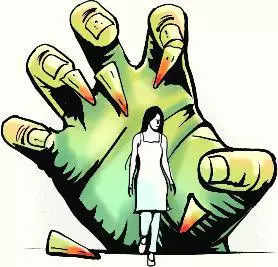Kolkata: Online violence against women was cited as one of the “upcoming” threats against the dignity and safety of women by Amrita Dasgupta of NGO Swayam during a discussion organized by the Bengal Obstetric and Gynecology Society (BOGS).
In response to the question of moderator Dr Jaita Chakrabarti’s question — if there was a change in how violence against women takes place in their respective fields of expertise — Dasgupta stressed the use of technology on social media platforms to threaten women.
Morphing of women’s images and using it for “revenge porn” was one of the examples cited by Dasgupta as means used by predators to cause harm. A report published by the United Nations Women in 2022 stated that the prevalence of online and technology-facilitated violence against women and girls ranges from 16% to 58% across the globe.
According to the report, such acts of violence include sexual harassment, stalking and zoom bombing, which is the practice of disrupting a video-conference call and showing “racially charged or sexually explicit material to the unexpecting participants”.
A human rights practitioner at Calcutta High Court, Mrinalini Majumdar, highlighted the need for a legislative mechanism to manage an individual’s behavior on social media platforms.
In response to the question of moderator Dr Jaita Chakrabarti’s question — if there was a change in how violence against women takes place in their respective fields of expertise — Dasgupta stressed the use of technology on social media platforms to threaten women.
Morphing of women’s images and using it for “revenge porn” was one of the examples cited by Dasgupta as means used by predators to cause harm. A report published by the United Nations Women in 2022 stated that the prevalence of online and technology-facilitated violence against women and girls ranges from 16% to 58% across the globe.
According to the report, such acts of violence include sexual harassment, stalking and zoom bombing, which is the practice of disrupting a video-conference call and showing “racially charged or sexually explicit material to the unexpecting participants”.
A human rights practitioner at Calcutta High Court, Mrinalini Majumdar, highlighted the need for a legislative mechanism to manage an individual’s behavior on social media platforms.





